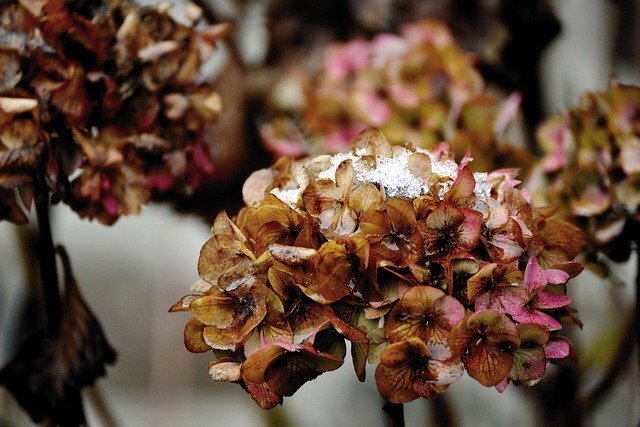Image by congerdesign from Pixabay
If you follow me on Instagram, you know that my New Year posts have featured bare trees and shrubs. I’ve posted pictures of the fuzzy pods on bare Star Magnolias, the bare red branches of coral bark maples, the tight round buds on dogwoods, and the peeling bark on birch trees. At first glance, so much of the landscape that surrounds us in January looks lifeless, but it is really only dormant.
Scientists describe dormancy as the period in an organism’s life cycle when growth and development are temporarily stopped. Dormant plants are not producing leaves or flowers or fruit. Dormant animals have halted most or all of their physical activity. But dormant plants and animals are not dead. They are resilient and full of life.
Gardeners are very attuned to dormancy. Perennial plants respond to adverse environmental conditions like cold weather (and sometimes to drought) by going dormant. Dormancy conserves energy. The plant may look dead, but the core and roots of the plant are still living, storing energy for the future. Once conditions improve, the plant will pour that pent up energy into producing new leaves and supple young branches.
I’ve been thinking a lot about dormancy. For a long time, I’ve thought of the pandemic as an unpleasant and anxiety-producing set of restrictions. And it is indeed both of those things. It has felt like I’ve gone dormant—unable to produce much that is new.
I talk with coaching clients about reframing—about looking at some condition in life in a new way and reframing how we think about it. Reframing can free us to take healthier approaches to life’s challenges. Lately, I’ve been thinking about whether it might be helpful to reframe this practice of sheltering at home as something like a state of dormancy. Many of the things that would ordinarily consume my energy--new projects, community activities, time spent with loved ones—have been largely off-limits. It’s been helpful for me in recent weeks to think of the pandemic as a period when I’ve been able to conserve energy conserved so that when life resumes more normal rhythms, I can emerge from dormancy and pour my energy into producing my own equivalent of new leaves and flowers.
What do you think? How do you think about the state of dormancy? Is that a helpful way for you to think about this period in our collective lives?



